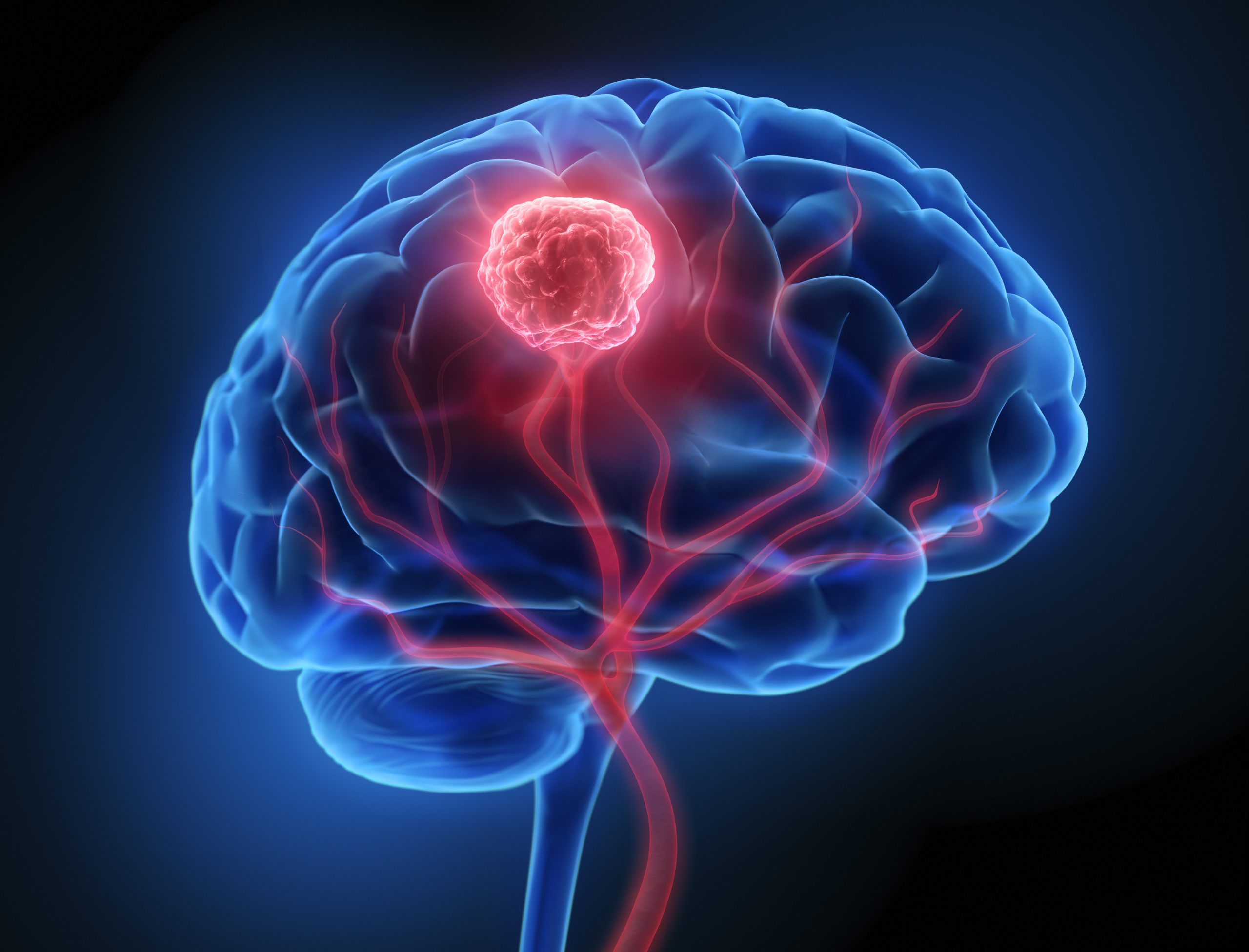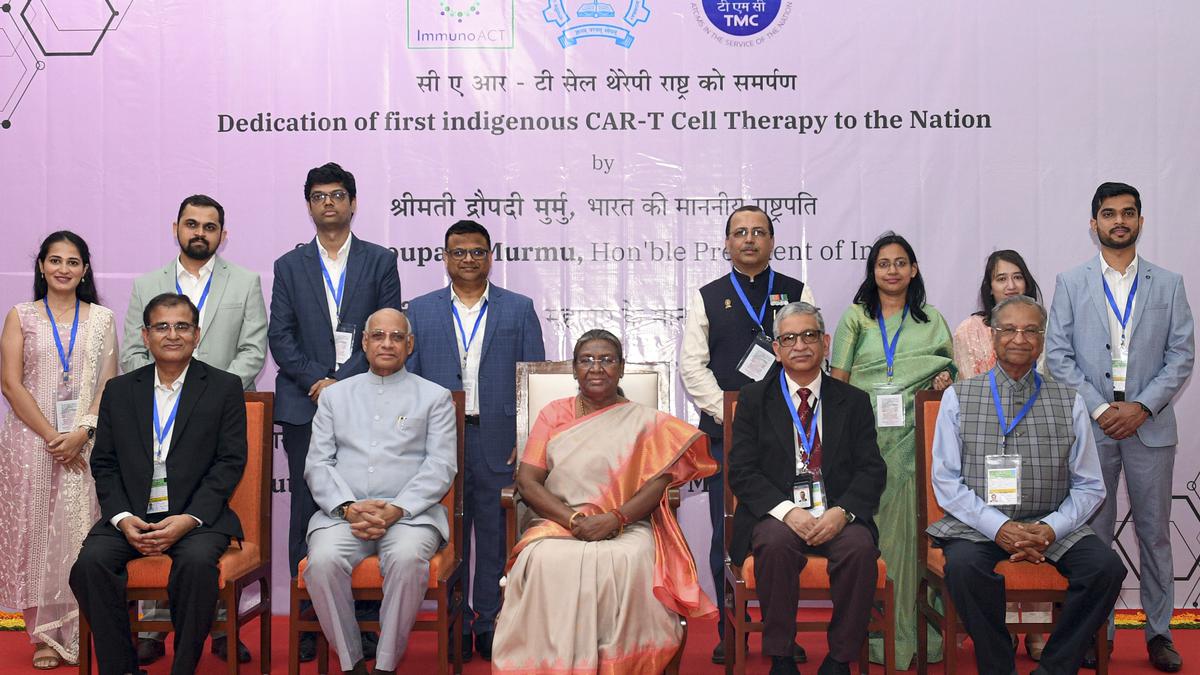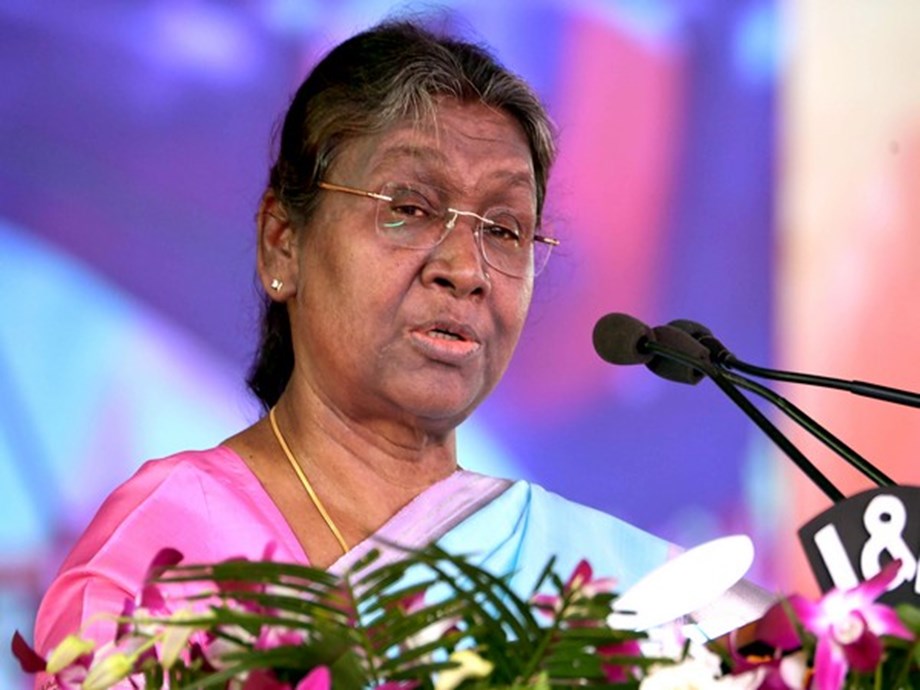






President Droupadi Murmu has launched India's first homegrown gene therapy for cancer treatment. The therapy, named 'CAR-T cell', was developed in collaboration between the Indian Institute of Technology (IIT) Bombay, Tata Memorial Hospital, and ImmunoACT. This gene therapy is considered the world's most affordable CAR-T cell therapy and is expected to revolutionize cancer treatment in India. President Murmu expressed confidence in the therapy's success in giving new lives to countless patients [16abde74].
The CAR-T cell therapy, developed by the Indian Institute of Technology (IIT) Bombay, Tata Memorial Hospital, and ImmunoACT, is accessible, affordable, and considered the world's most affordable CAR-T cell therapy. President Murmu expressed confidence in the therapy's success in giving new lives to countless patients. This gene therapy is a major milestone in the battle against cancer and is expected to revolutionize cancer treatment in India. It offers hope to patients by providing an affordable and effective treatment option [10588c0d].
The therapy involves modifying a patient's T cells in the laboratory to attack and destroy cancer cells. It is expected to bring down the cost of treatment significantly and is considered a major breakthrough in the battle against cancer. The treatment costs approximately Rs 30 lakh in India, compared to Rs 4 crore abroad. The low-cost CAR-T cell therapy is expected to help around 20,000 Indians every year and places India firmly on the global map of cell and gene therapy [3d1523d0].
India's first homegrown gene therapy for cancer treatment was launched by President Droupadi Murmu at the Indian Institute of Technology (IIT) Bombay. The therapy, named 'CAR-T cell therapy', is considered a major breakthrough in the battle against cancer. It is accessible and affordable, providing hope for patients worldwide. The therapy is the world's most affordable CAR-T cell therapy and is an example of the 'Make in India' initiative. It was developed through collaboration between IIT Bombay, Tata Memorial Hospital, and industry partner ImmunoACT. The President praised the academia-industry partnership and highlighted the role of IIT Bombay in technological advancements. The therapy is expected to benefit India greatly [ba63514b].
Chinese scientists have successfully cured a diabetes patient using an innovative cell therapy. The patient became insulin-free within three months after a cell transplant in July 2021. The patient gradually reduced and eventually stopped taking oral medication for blood sugar control. The treatment involved programming the patient's peripheral blood mononuclear cells to create 'seed cells' that regenerate pancreatic islet tissue. This breakthrough has the potential to significantly alleviate the healthcare burden of diabetes in China, where 140 million individuals are affected, 40 million of whom depend on lifelong insulin injections. Further studies are needed to validate these results [a4fa0ee7].
Researchers at the University of Florida have developed an mRNA cancer vaccine that reprograms the immune system to attack glioblastoma. The vaccine was tested in a first-ever human clinical trial with four adult patients and showed promising results. The vaccine uses the patient's own tumor cells to create a personalized vaccine and utilizes an engineered complex lipid particle (LP) delivery mechanism. The vaccine reprogrammed the tumor microenvironment within days, allowing the immune system to fight the tumor. The researchers aim to progress the mRNA vaccine into an expanded Phase I clinical trial involving adult and pediatric brain cancer patients [8f321f3f].
Pune-based Rasayu Cancer Clinic has signed a Memorandum of Understanding (MoU) with the Uttarakhand State Government to integrate Ayurveda practices with modern healthcare. The collaboration aims to provide specialized training in Ayurveda and Cancer to government doctors in Uttarakhand. A 4-day workshop was conducted by Ayurveda experts at Rasayu Cancer Clinic Pune to mark the occasion. The collaboration also aims to introduce Ayurvedic principles in cancer treatment, research, and published papers. The MoU will help train future Ayurveda doctors in the field of Ayurveda oncology. Rasayu Cancer Clinic has over 25 years of experience in treating cancer patients through Ayurveda and has developed various treatment systems based on chemotherapy. The clinic has also developed computer technology based on artificial intelligence and machine learning to remotely monitor patients' conditions. Dr. Yogesh Bendale, President of Rasayu Group Pune, expressed hope that this partnership will harness the research-based potential of Ayurveda to fight cancer [ca21f4f7].
A recent groundbreaking study uncovers the potential of CRISPR-Cas9 for targeted cancer therapies. CRISPR-Cas9 allows scientists to make precise cuts in DNA, enabling the removal, addition, or alteration of specific genetic sequences. Researchers aim to halt the progression of cancer by targeting and deactivating specific genes that drive cancer growth. The study utilized advanced sequencing technologies to identify genetic mutations specific to each cancer type, allowing for a more personalized approach to treatment. The research highlights innovative approaches to ensure the efficient and targeted delivery of the CRISPR components to cancer cells. CRISPR-Cas9 holds potential for treating a range of genetic disorders. The technology could herald a new era in medicine, where genetic diseases are tackled with unprecedented accuracy and efficiency [07fa6048].